You may have noticed a few posters or advertisements for a new film called Dunkirk. While this movie about World War II was not made for younger audiences, we think that the story behind it is, well, a real dynamo! As in Operation Dynamo.
That was the official name of the evacuation of the British army from Dunkirk, France from May 26 to June 4, 1940. This event may not be as celebrated as D-Day or the end of the war, but it remains one of the greatest wartime rescues ever, saving nearly 340,000 lives.
Germany advances across Europe
German tanks and armies quickly took over many European countries at the start of World War II. (Getty Embed)
The Second World War took place between 1939 and 1945. The war started in Europe, when Adolf Hitler's Nazi Germany invaded Poland in September 1939. In the next eight months, his forces took over country after country, including Belgium, Luxembourg, Denmark, Austria, Greece, Norway, and the Netherlands.
On May 10, 1940, the Nazis invaded France. Their style of war, called blitzkrieg, was fast, mobile, and very different to style of war the French anticipated. The Nazis were quickly defeating their armies badly (France would surrender in late June). This meant that the only powerful opponent left in Europe to fight against the Nazis was Great Britain.
Getting caught
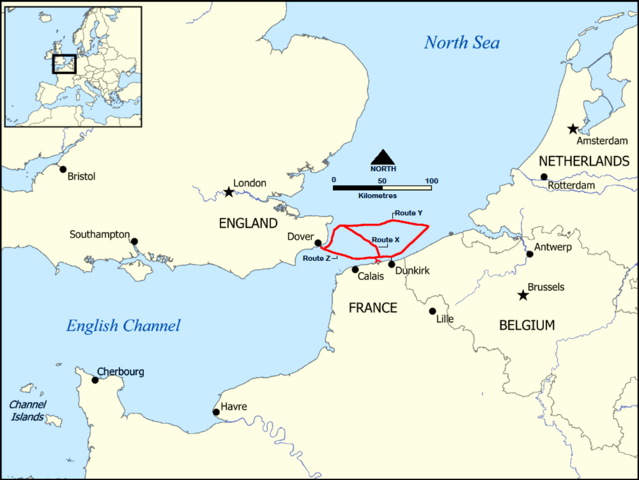
This map shows the distance between Dunkirk and Dover, as well as three routes that rescue boats would take to reach them once Operation Dynamo began. (Wikimedia Commons)
The British Expeditionary Force (BEF) was the name of the British army sent to Europe to fight alongside France. They were also surprised by Germany's blitzkrieg tactics. By May 21, the BEF and remaining French armies had retreated to Dunkirk. This small city and harbour was on France's north shore, just across the English Channel from the British city of Dover.
Around 400,000 soldiers were trapped in Dunkirk. Though they could see England on a clear day (it was only 75 km or 47 mi. away), they had no way to get there. Huge Nazi armies were close by and their air force, the Luftwaffe, patrolled the skies.
The BEF and their French allies looked doomed.
A call for help
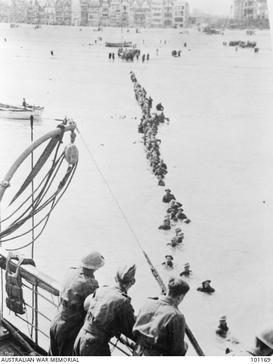
Soldiers had to walk through metres of shallow waters to reach rescue boats. (Wikimedia Commons)
On May 26, British Prime Minister Winston Churchill ordered Operation Dynamo to begin. By the next day, 35 Royal Navy ships were arriving to take soldiers home. But this was far from easy. Even the largest ships could only manage to take around 900 men per trip. Even worse, the waters around Dunkirk's beaches were so shallow that it was difficult for ships to get close enough to rescue soldiers. And the large ships were easily targeted by the Luftwaffe. By May 29, 19 British and French navy ships had been sunk.
The Luftwaffe's Stuka dive bombers were especially terrifying to soldiers trapped on the beach at Dunkirk. (Getty Embed)
Britain needed a miracle. So the country put out the call to its civilians: Ships needed immediately to rescue our soldiers trapped in Dunkirk. Any size, any crew.
The Little Ships of Dunkirk
Rescue ships of all sizes carrying soldiers home. (Getty Embed)
By May 31, 400 ships had already volunteered and were sailing to Dunkirk. By the end of the mission, around 700 ships joined in. They were known as the Little Ships of Dunkirk.
They included ferries, yachts, fishing boats, and more. In some ways, the smallest boats had unique advantages over larger naval destroyers. Their small draft, or boat depth, meant that they could travel in shallow waters more easily. Many were also more mobile and harder for Luftwaffe planes to hit.
However, they had no weapons and no armour. Their captains and crew were everyday people, often too old or too young to fight as soldiers. Aside from Royal Air Force (RAF) planes in the skies, they had very little protection. It was an incredible moment of ordinary citizens risking everything for their country.
A dynamic success
Grateful soldiers arrive in England after being rescued in Dunkirk. (Getty Embed)
Operation Dynamo ended on June 4. At first, Churchill and his generals hoped that they could rescue around 45,000 men. But thanks to efforts of ordinary sailors and the RAF (who flew tirelessly for days fighting off the Luftwaffe), they rescued 338,226 men!
Many historians say that if Dunkirk had gone differently, Britain may not have lasted much longer in the war. In other words, Nazi Germany could've taken over the whole continent, all before the United States had even decided to enter the war in December 1941. Instead, Churchill rallied his country around "the Dunkirk Spirit" and the British carried their belief that they could win the war.
World War II would eventually end in Europe as a victory for Britain and its allies in May 1945.
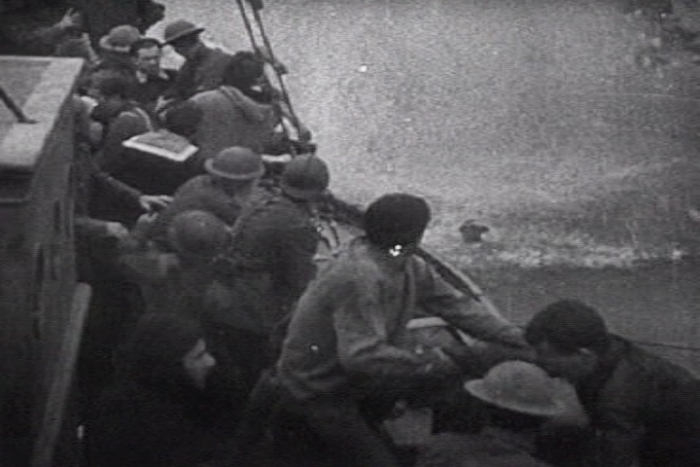 This reenactment from a 1943 U.S. military film shows a British vessel rescuing soldiers from Dunkirk, France in 1940. (Wikimedia Commons)
This reenactment from a 1943 U.S. military film shows a British vessel rescuing soldiers from Dunkirk, France in 1940. (Wikimedia Commons)


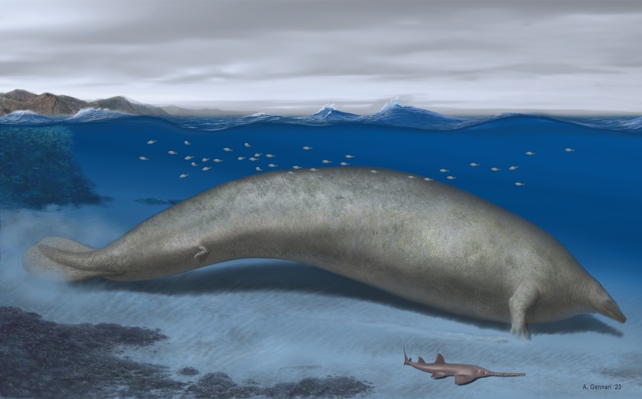



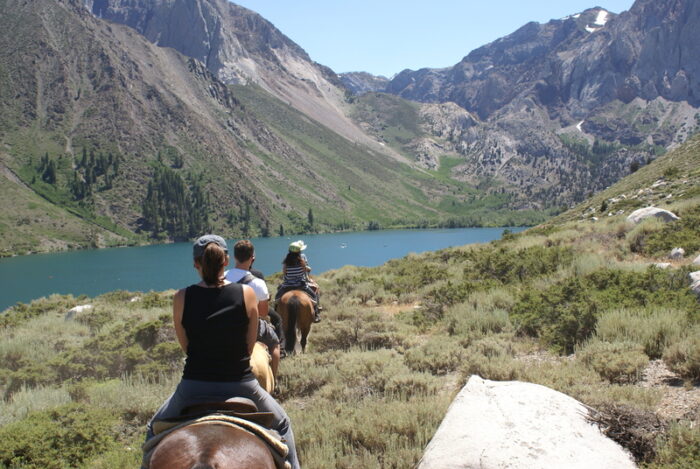



Thank you. Very interesting and informative indeed. I did not have all of these details. What a great story to tell and share.
may 31 is my birthday so i celebrate with the Dunkirk evacuation!